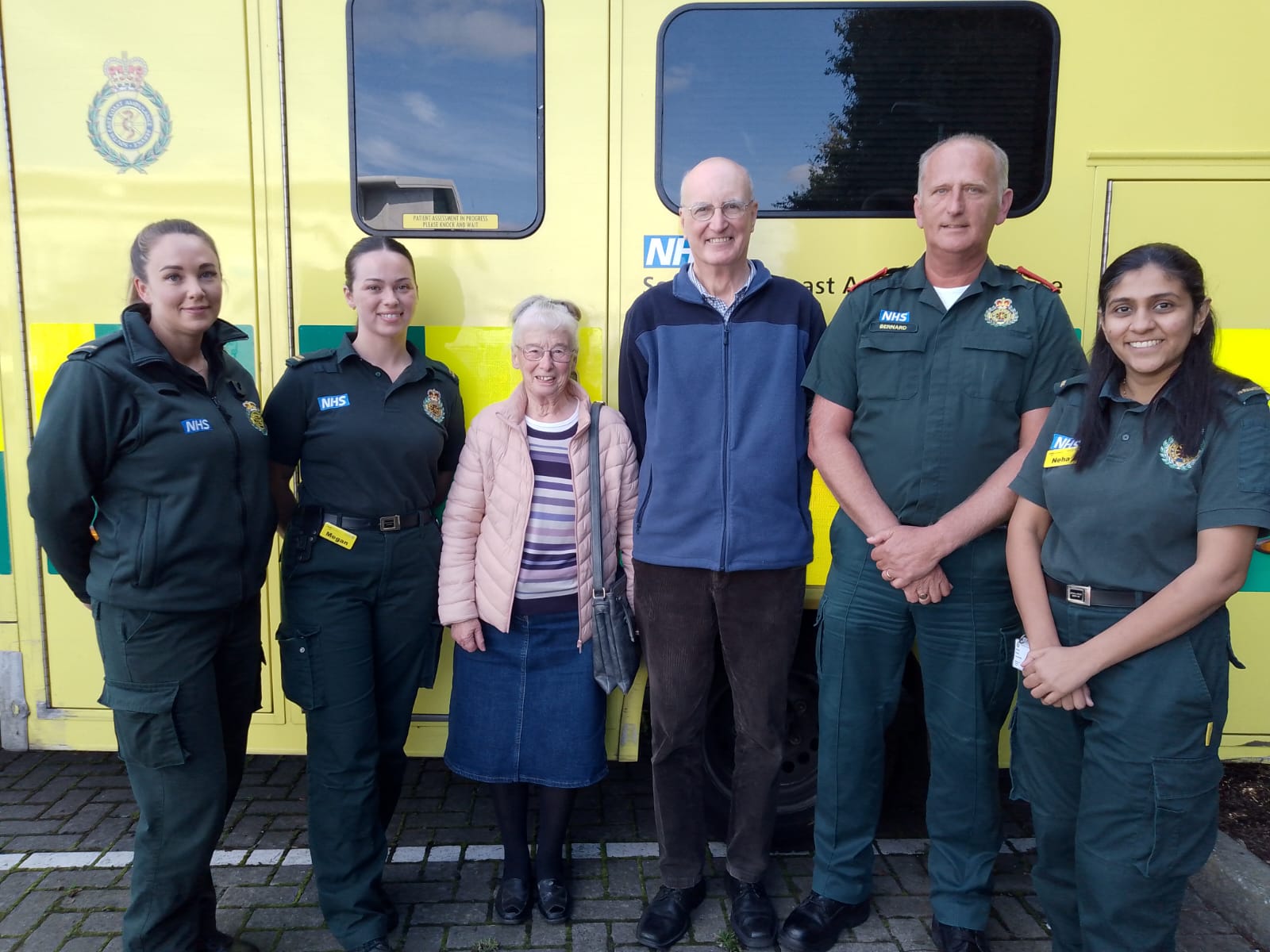When 76-year-old Harold Lee experienced sharp chest pain and dizziness at his home in Bognor Regis, his wife immediately called 999, recognising something was seriously wrong. Paramedics Megan Bishop and Lucy Lillywhite arrived within minutes to find Harold visibly unwell.
“Harold seemed like someone who led a very active life, but the symptoms were clear, he was in distress,” said Megan, a Newly Qualified Paramedic with South East Coast Ambulance Service (SECAmb).

An electrocardiogram (ECG) confirmed Harold was suffering from an ST Elevation Myocardial Infarction (STEMI), a life-threatening heart attack.
The team swiftly sent the results to Queen Alexandra Hospital in Portsmouth and administered critical medications to stabilise Harold while preparing him for transport. However, Harold’s condition deteriorated during the journey. Critical Care Paramedic (CCP) Bernard Robinson joined the response just as Harold went into cardiac arrest.
The team performed immediate CPR and delivered two shocks with a defibrillator, successfully reviving him.
“Seeing Harold’s heart start beating again was a huge relief,” said SECAmb Paramedic, Lucy.
At the hospital, Harold underwent emergency surgery to clear a blocked artery and
some three months later, was able to reunite with the SECAmb team.
“I don’t remember much, but I firmly believe it’s a miracle that I’m here today,” he said. “Thanks to the team, I’m back walking, driving, and spending time with my family.”
Since his recovery, Harold and his wife have resumed their daily walks, cherished family time, including games of chess with his grandchildren, and active involvement in church activities.
For Megan, this case was particularly meaningful. Having been with the service for seven years, she worked her way up from an Emergency Care Support Worker (ECSW) to a Newly Qualified Paramedic (NQP). Harold’s resuscitation marked her first known successful case where the patient survived over 30 days post-discharge – a milestone in her career.
For Megan, Lucy, and Bernard, the reunion was a powerful reminder of the life-saving impact of their work.
Bernard said: “To see Harold thriving after such a critical event is why we do this job. It was a pleasure to meet him and his story underscores the importance of early CPR, teamwork and expert care in cardiac arrest patients.”
